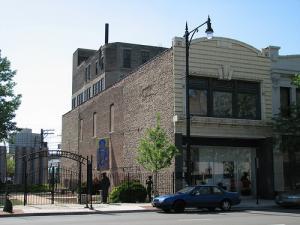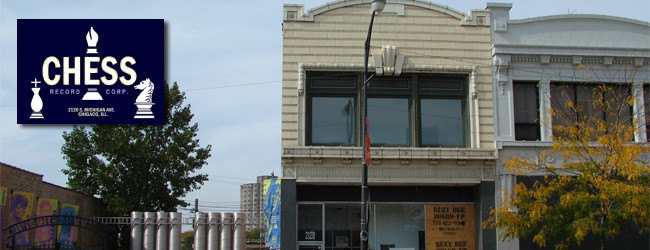
Some long standing private feelings between the family of past entity Chess Records and the owners/operators of what has become Blues Heaven Foundation have boiled into the public light.
Marshall Chess, the son of the late Leonard Chess, has made public his feelings on the current blues non-for-profit founded by the late Willie Dixon, and what he feels is a missing acknowledgement of the larger-than-life blues legacy that his father and family created.
Leonard, along with his brother Phil, founded Chess Records in 1950 and went on to sign & record the greatest names in blues history, including Muddy Waters, Howlin’ Wolf, Bo Diddley, Willie Dixon, the recently departed Etta James, Chuck Berry and many more. The musical legacy coming from the famous building at 2120 South Michigan Avenue in Chicago was enormous, and continues to have a lasting impression on America’s culture.
Chess Records was effectively gone by 1969, but in 1997, the widow of Willie Dixon purchased the building, saving it from demolition, and moved operations for the non-for-profit Blues Heaven Foundation, started by her husband — the late bassist and visionary songwriter, to the location. The organization conducts tours of the building and works to continue the legacy of Dixon and Chess.
Marshall Chess recently told the Chicago Sun-Times that he felt “dissed”. “The whole Chess family was taken out of the picture,” he said, referring to the name of the building, operations continuing to be somewhat ambiguously be called “Blues Heaven”, and the “Chess Records” name and logo being stripped from the building’s façade.
Chess went on to blueprint an apparently well thought out vision for a major restoration and overhaul of the building and the attraction, saying he would “buy the building if they would sell it”, restoring a working studio, marketing the location as a major tourist attraction, and creating a restaurant and gift shop next door.
Marie Dixon, who remains the president of Blues Heaven, retorted that Chess hadn’t made a donation to help restore the building, and expressed similar sentiments as Chess — telling the paper it was her dream to recreate a studio and overhaul the aging building — “but I need a lot of help.”
As for cutting the chess name out, Dixon told CST, “I’m not trying to… we mention the offices of Leonard and Phil Chess on every tour.”
“We went in and the guy wanted to charge us admission!” exclaims Chess on why he hasn’t donated. “I was highly insulted.”
Ultimately, both parties seem to be in agreement — however tense the situation may be — that the former Chess Records building, now the home of Blues Heaven, could use an overhaul and expansion. The timing for such an ambitious undertaking couldn’t be better.
Blues tourism numbers, (and subsequent revenue,) have been continuing to rise nationwide year-over-year. Tourist-related tax revenue in Clarksdale, Mississippi, the benchmark for the growing blues tourism industry, has been expanding at an exponential pace the past three years. Similar museum sites such as Stax Records and Sun Studio in Memphis are thriving. A National Blues Museum is underway in Saint Louis, and the Chicago Blues Festival brings nearly half a million blues fans to the city every year.
With the growing interest in roots music, a recent star-studded hit movie on Chess, (Cadillac Records,) and numbers on the rise, the time appears ripe to market another attraction on the blues tourism trail, especially one as prominent and historic as Chess Records.
We’d like to hear from you. Leave your comments and thoughts on the dispute over Chess in the comments section below.
The Chicago Sun-Times Article can be found in it’s entirety here.

